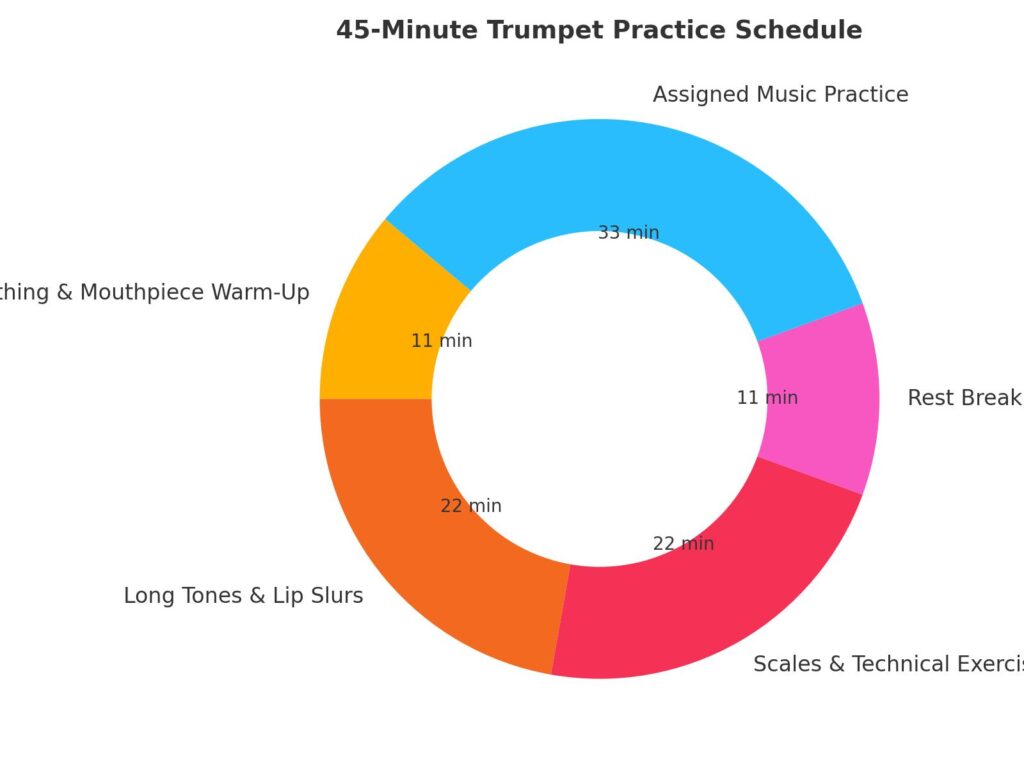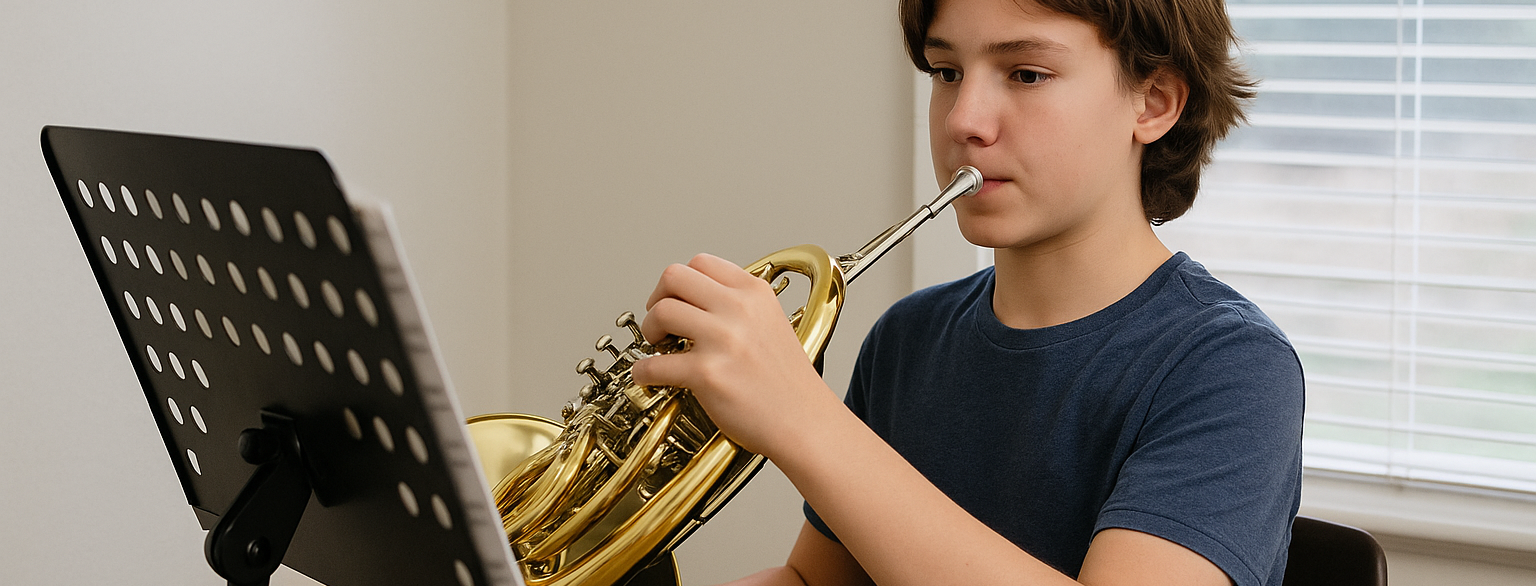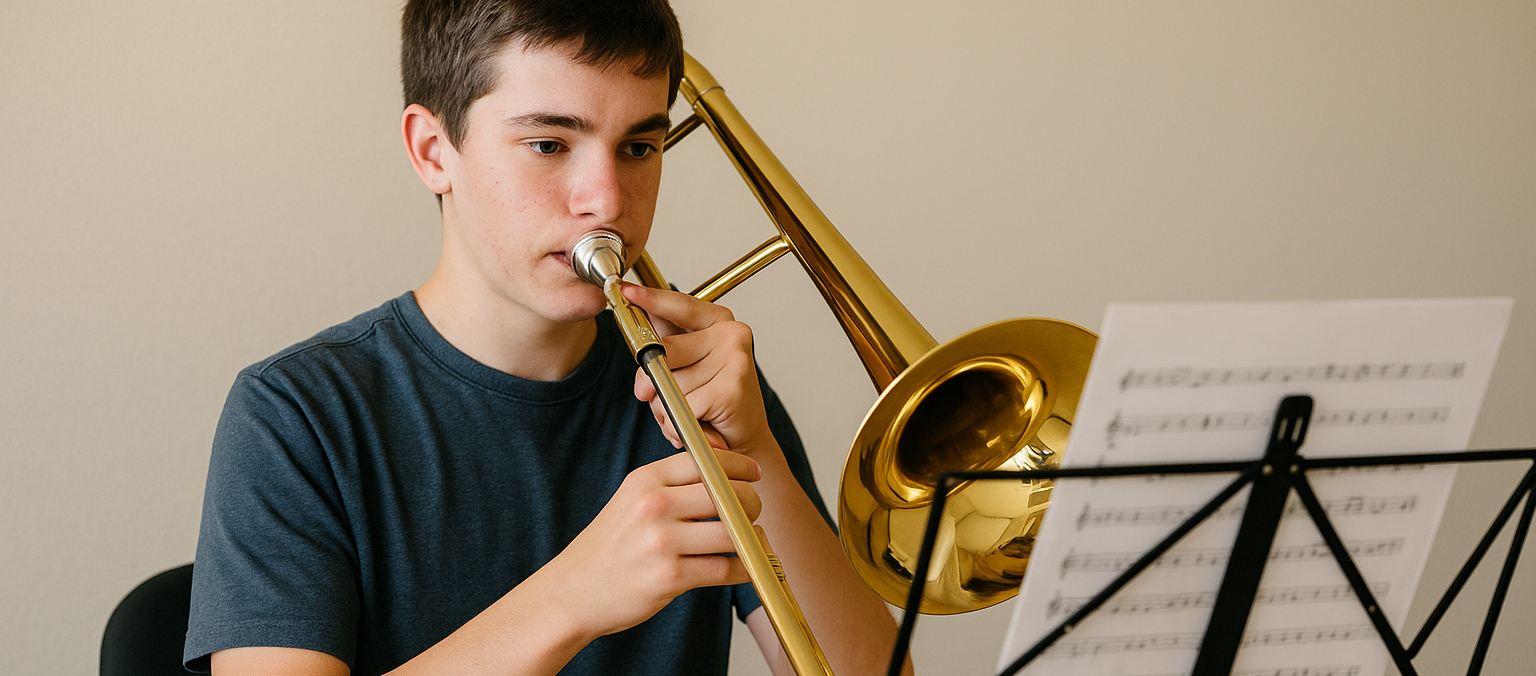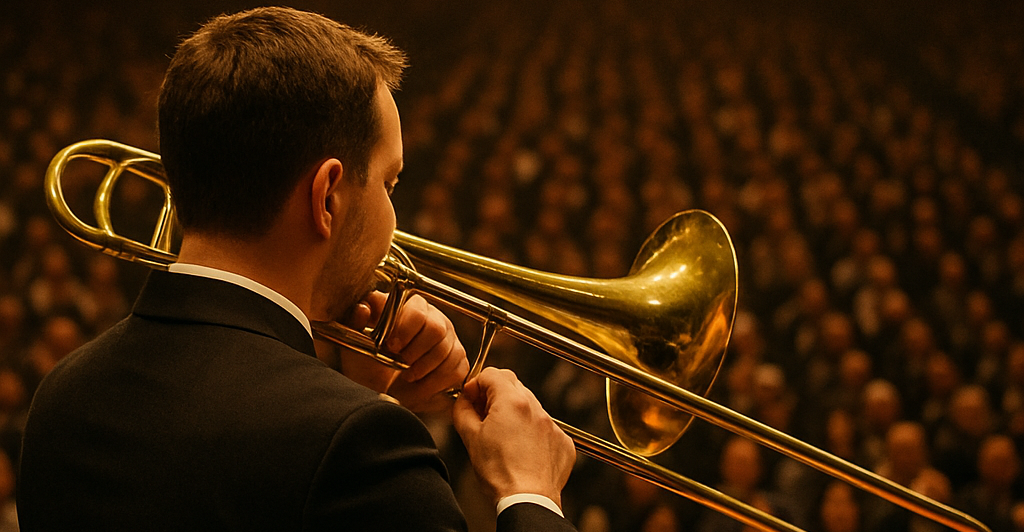Note: Practicing almost every day is essential for brass players. Your lips (called your “embouchure”) are muscles that need consistent training to develop strength, endurance, and tone quality. It’s normal to take short breaks during your practice to avoid fatigue — rest is part of the process!
0:00–5:00 — Breathing and Mouthpiece Warm-Up
- Deep breathing exercises (inhale for 4 counts, hold 4, exhale 4).
- Buzz on the mouthpiece alone to engage your lips and airflow.
- Light long tones on the mouthpiece (match pitch with a piano if you can).
5:00–15:00 — Long Tones and Lip Slurs
- Start on middle G and hold steady tones for 8 seconds, focusing on tone and control.
- Work chromatically down and up.
- Add easy lip slurs (e.g., C–G, G–C on open valves) to build flexibility.
💡 If your lips feel tired, take a 1–2 minute break and breathe deeply before continuing.
15:00–25:00 — Scales and Technical Exercises
- Practice major scales (1 or 2 each day), focusing on clean fingerings and smooth tone.
- Try a simple articulation exercise: tongue each note in a scale, then slur them.
- Add simple range builders like Clarke Studies (low to high register) if ready.
25:00–30:00 — Quick Break
- Gently massage your lips, stretch your face, and sip water.
- Avoid playing for 3–5 minutes to let your lips rest and recover.
30:00–45:00 — Practice Your Assigned Music
- Review the music your teacher gave you.
- Focus on difficult spots — break them down into 2–4 note chunks.
- Practice slowly, then gradually speed up as you improve accuracy.
- Finish with a full run-through of your piece if time and endurance allow.
✅ Final Tip:
If you can’t do the full 45 minutes in one go, split it into two 20–25 minute sessions. Consistency is better than pushing through exhaustion.






